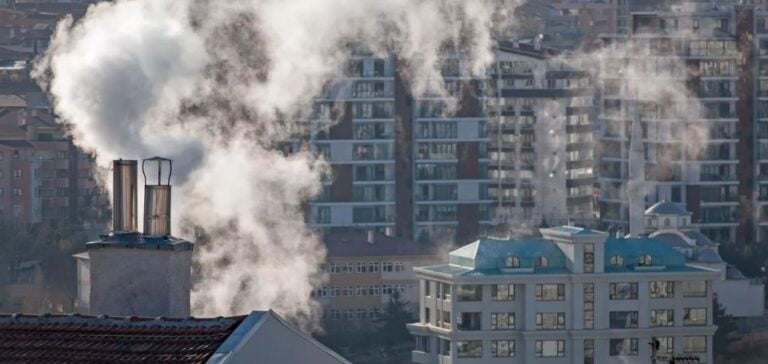In 2023, the European Union recorded a significant drop in greenhouse gas emissions, achieving an 8.3% reduction compared to the previous year. This decrease represents the largest annual reduction in decades, except for 2020, when COVID-19 restrictions led to a 9.8% emissions drop. The European Commission praised this development, highlighting the role of renewable energies and energy savings in this achievement.
Causes of the Emissions Drop
The European Commission attributes this reduction largely to the growth of renewable energies, particularly wind and solar power, as well as a reduction in coal dependency. In 2023, renewables accounted for 44.7% of the EU’s total electricity production, while fossil fuel-based production dropped by 19.7% in gigawatts (GW). Nuclear production, on the other hand, grew by 1.2%, representing 22.8% of the EU’s electricity production.
The Commission also reported a 24% decrease in emissions from electricity production and heating compared to 2022. This change aligns with a transition towards more sustainable energy consumption, with a steady rise in renewable energy usage, which grew from 10.2% in 2005 to 24% in 2023 in overall energy consumption.
Disparities Among Member States
The EU’s energy mix varies significantly between countries, with some member states further along in their energy transition than others. This diversity poses a challenge for the Union, which aims to reduce its emissions by at least 55% by 2030 compared to 1990 levels. Currently, the Union’s net emissions have decreased by 37% since 1990, according to the European Environment Agency (EEA). However, to meet the set targets, the EEA indicates that member states must implement additional measures to reach a 49% emissions reduction by 2030.
Challenges in the Transport Sector
Despite this progress, the transport sector, particularly aviation, continued to increase its emissions in 2023. Aviation sector emissions rose by 9.5%, marking a continued post-pandemic recovery. This sector presents a significant challenge for emissions reduction, especially as demand for air travel remains strong across the Union.
EU’s Ambitions and Political Obstacles
To achieve climate neutrality by 2050, the EU envisions a 90% reduction in emissions from 1990 levels by 2040, an objective the European Commission will submit for negotiation with stakeholders. However, these ambitions face political resistance, notably from the European People’s Party (EPP), which is concerned about the impact of these measures on households and businesses. EPP MEP Peter Liese has already expressed concerns, indicating that discussions will be necessary to assess the feasibility of these goals.
The recent rise of right-wing and far-right parties in the European elections has also raised concerns among non-governmental organizations (NGOs), who fear a potential rollback of the EU’s climate ambitions. Nevertheless, the Union remains committed to its energy transition strategy, despite the political and economic challenges it faces.






















